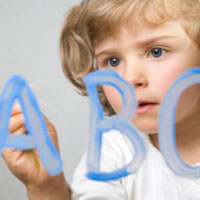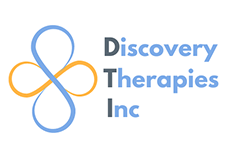Symptoms of Learning Disabilities
Symptoms of learning disabilities vary among individuals but could include many of the indicators listed below:
- Significant delay in any of the basic academic skills: reading, writing, mathematics
- Frustration with lack of performance
- Mixed dominance - example: write with left hand and bat right handed
- Directional confusion - often confuses left from right
- Similar learning problems in other family members
- Extreme difficulties in sequencing
- Slowed or delayed speech development
- Difficulty with time and time relationships
- Memory retrieval problems
- Poor motor control
- Problems with attention
- Disorganization
- Tendency toward reversals after 8 years old
- Poor oral reading
- Poor handwriting and dysgraphia
- Inability to copy correctly
- Poor spelling
- Difficulty expressing thoughts verbally or in writing
- Behavior problems
- Leaks and lapses in memory
- Slow processing - takes longer than most to complete a task
- May have significant creativity/talents in one or more areas
At Risk Students *Those who have experienced trauma 0-3 years old.* For example:
- surgeries
- multiple ear infections
- abuse
- premature birth
- major illnesses
- neglect
- birth trauma
- injury to the head
- mother who smoked/drank during pregnancy
SEARCH Scan
SEARCH Scan - is a 20 minute nationally recognized evaluation designed to identify K-5 through 1st graders who may have difficulty with perceptual processing skills necessary for learning. A great tool for identifying potential learning issues.
Request more information.
Skill Based Evaluation
Evaluations of how a student is currently achieving in reading, writing and/or math are done through the use of a standardized achievement test (such as the Woodcock Johnson Tests of Achievement) and other informal tests chosen by the evaluator. Those who are enrolling in an Rx for Discovery intervention or NILD Educational Therapy in person or via telehealth through our clinic will receive educational testing as pre and post testing evaluations.
* Others can have this testing done separately at a cost.
Request more information.
Full Cognitive-Educational Evaluation
The cognitive-educational evaluation, otherwise known as a psycho-educational evaluation, is to identify the student's current learning profile of strengths and weaknesses and provide diagnoses as appropriate. This is the most comprehensive educational evaluation program and is given by a qualified doctoral level examiner.
The minimum components of the test will include:
- An IQ test, usually the Woodcock Johnson Test of Cognitive abilities or the WISC (Wechsler Intelligence Scale for Children). This test helps to determine the student's current ability to perform at age level expectations - how easy or difficult learning should be for your student at this point in time.
- A standardized achievement test such as the Woodcock Johnson Tests of Achievement. This provides information on how they are currently achieving academically.
- A test of Visual Motor Integration (Bender or Beery VMI). This test helps to identify potential difficulties in accurately getting down on paper what they see.
- A test of executive functioning (optional). This test identifies non-academic skills that impact life and learning such as organization, time management, problem solving, and goal setting.
Additional components could include:
- A test of executive functioning (optional). This test identifies non-academic skills that impact life and learning such as organization, time management, problem solving, and goal setting.
- A test of Oral Language such as the Woodcock Johnson Tests of Oral Language.
Ideally the testing is used to understand how the student is currently wired to learn - his or her unique profile of strengths and weaknesses – so that families have the information they need to make decisions for their struggling learner. However, this type of evaluation is also necessary for diagnosis of a potential learning disability (such as dyslexia), as well as placement in special education in public schools. It is also required for enrollment in Discovery Therapies' individually designed educational therapy intervention.
Public schools can provide this type of evaluation at no cost to the parent, although it is typically a lengthy process. Parents may also seek private testing at costs ranging from $950 - $3,000 depending on who is doing the testing and what additional components the evaluator deems necessary to include. Please contact us if you need guidance in getting the testing done through one of our qualified examiners or contact information for one of our local psychologists in the metro Columbia, SC area.
Request more information.
More Information
I am interested in receiving information about the following types of evaluations available through our education testing and learning disability diagnostic center:



